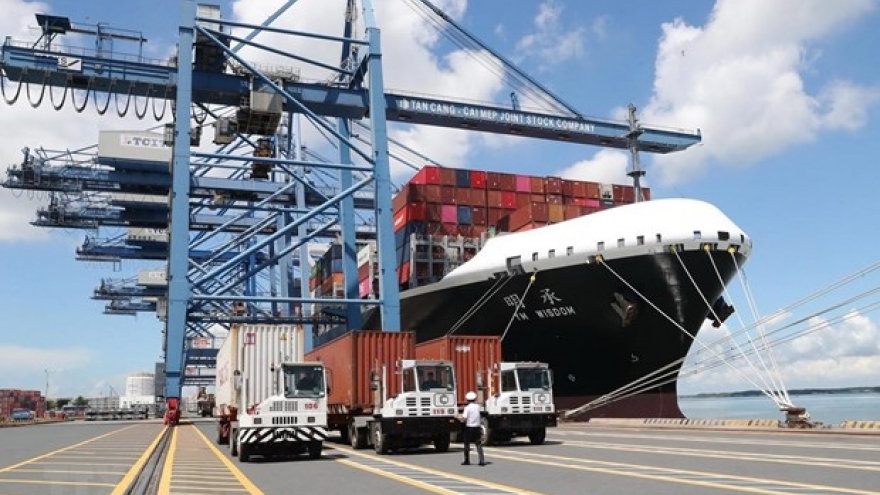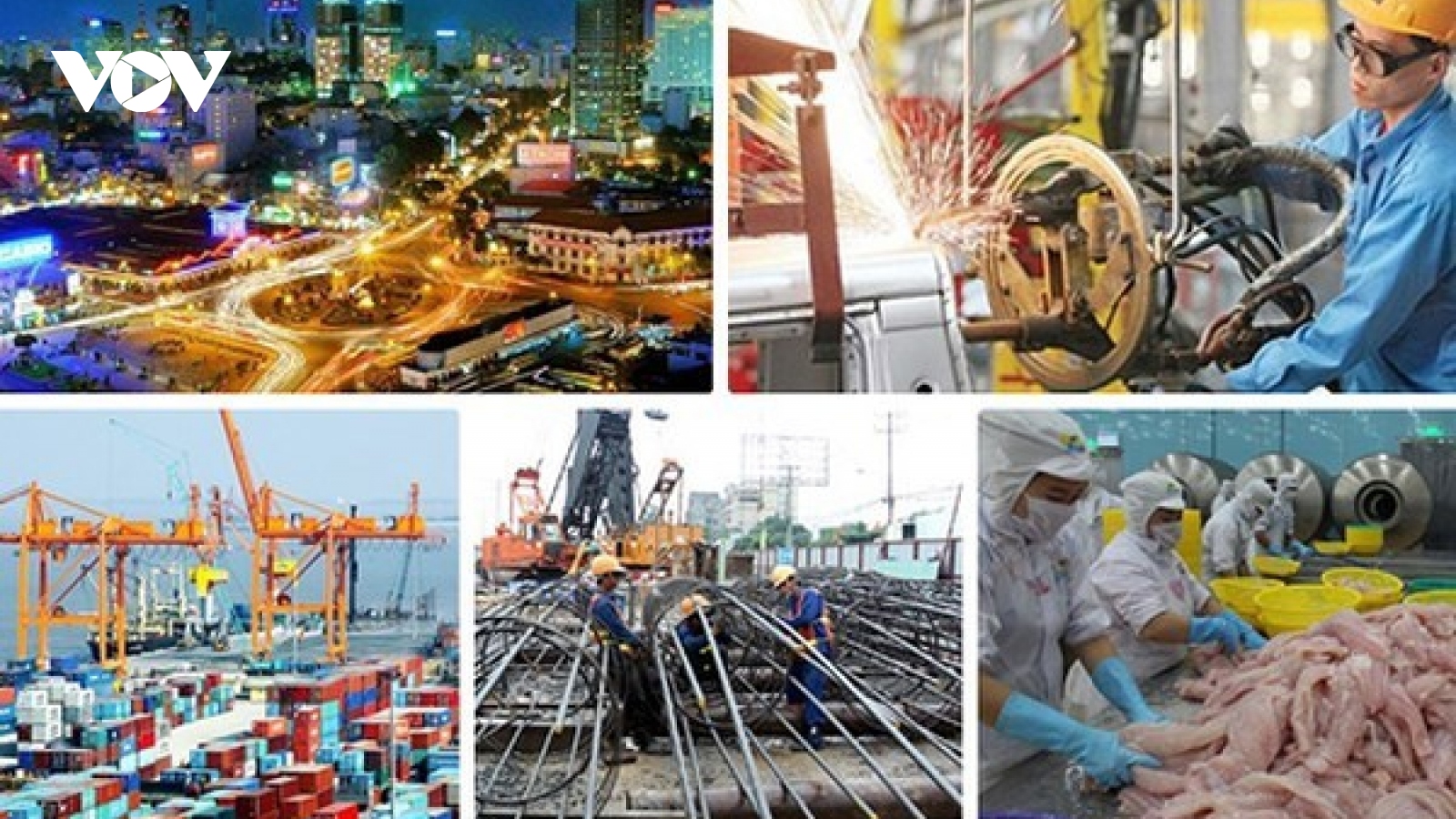Economy remains on upward track
In defiance of the health crisis hurting the domestic economy, Vietnam has earned international optimitism for its growth outlook on the back of the country’s good control of COVID-19 leading to impressively positive growth last year and a friendly business climate.

In December and January, when the country began to be hit by a resurgence of COVID-19, a team of specialists from the ASEAN+3 Macroeconomic Research Office (AMRO), a regional macroeconomic surveillance organisation based in Singapore, held a virtual annual consultation with Vietnamese authorities.
The discussions focused on the impact of the pandemic on the Vietnamese economy and policy response in supporting recovery while maintaining stability.
“Vietnam’s economic growth slowed to 2.91 % in 2020 due to the pandemic but is expected to rise to 7 % in 2021,” said AMRO lead specialist Seung Hyun Luke Hong. “The rebound is expected to be underpinned by a recovery in external demand, a resilient domestic economy, capital inflows, and increased production capacity.”
According to AMRO, after a sharp drop in the second quarter, economic growth started to rebound in the third quarter of 2020. The recovery was broad-based: manufacturing activity was boosted by a robust export sector, which benefited from Vietnam’s relatively resilient export mix, as well as trade diversion from the US-China trade tensions.
Meanwhile, domestic consumption recovered following the relaxation of mobility restrictions, a result of the authorities’ effective COVID-19 containment efforts. Furthermore, the rebound benefited from acceleration in public investment disbursement.
Vietnam has been among leading nations and territories that proved the most successful at containing the pandemic, according to a report unveiled on January 27 from the Lowy Institute, an independent think-tank in Australia.
The Covid Performance Index compiled by the institute evaluated how 98 countries and territories have handled their own coronavirus outbreaks based on the availability of data across six indicators: confirmed cases, confirmed deaths, confirmed cases per million people, confirmed deaths per million people, confirmed cases as a proportion of tests, and tests per 1,000 people.
While New Zealand took the top spot with 94.4 scores in total, Vietnam arrived second with an average score of 90.8 over 100, followed by Taiwan (86.4 scores), Thailand (84.2 scores), and Cyprus (83.3 scores).
“Vietnam has tackled the COVID-19 pandemic head on, putting the people at the centre of all its efforts. Prompt and determined actions have been taken to control the outbreaks to protect the health and safety of the people as a matter of top priority. Efforts are also made to maintain economic growth and social welfare, to leave no-one behind,” stated Deputy Prime Minister, Minister of Foreign Affairs Pham Binh Minh.
“Thanks to our wide government approach and the overwhelming support and solidarity of our people, COVID-19 has largely been controlled in Vietnam,” Minh added. “The economy continued to grow at almost 3 % in 2020. And timely support has been given to businesses and people affected by the pandemic, especially vulnerable groups like the elderly, women, children and people with disabilities.”
Promising outlook
A few weeks ago, Standard Chartered released its fresh forecast for Vietnam’s 2021 GDP growth.
“Standard Chartered expects Vietnam’s GDP growth to rebound to 7.8 % in 2021 from 2.91 % in 2020, with manufacturing likely continuing to drive the economy and helping Vietnam outperform the rest of Asia,” said the bank in a statement.
“The economy emerged from the worst of the COVID-19 downturn in the third quarter of 2020, and we think the recovery remains intact. Vietnam has been one of the best-performing economies globally for the past decade, and we expect this to continue,” said Tim Leelahaphan, Standard Chartered economist for Thailand and Vietnam.
Standard Chartered economists anticipated that improving public investment and services growth should support the economy in the coming years. Effective pandemic containment measures have further enhanced Vietnam’s appeal to overseas investors, making it an attractive destination globally for foreign direct investment (FDI).
Fitch Solutions under global rating firm Fitch Group told VIR in a statement that one of the key drivers for Vietnam’s economic growth in 2021 will be a climb in public investment and FDI. Prime Minister Nguyen Xuan Phuc has set up seven task forces to speed up the disbursement of public funds as well as warning that officials would face disciplinary action if their ministries or localities fail to realise their respective public investment disbursement targets.
“In 2021, we forecast state budget expenditures to grow by 16.6 % as a rebound of economic activity as well as government efforts to expedite public capital expenditure should drive rapid growth in expenditures,” said Fitch Solutions. “We forecast real GDP growth to recover to 8.2 % in 2021, from 2.91 % in 2020, although we do flag some downside risks to our 2021 forecast from persisting economic challenges brought about by the pandemic.”
According to the Vietnamese Ministry of Finance, as of the end of 2020, nearly VND390 trillion ($16.95 billion), equivalent to 82.8 % of the public investment plan allocated, has been disbursed. This is the highest ratio of disbursement in 2016-2020 – with 80.3 % in 2016, 73.3 % in 2017, 66.87 % in 2018, and 67.46 % in 2019. Most of the capital has been invested in infrastructure works.
Regarding FDI, significant supply-chain relocation is already underway as a result of the US-China trade war. Lingering global demand uncertainty and depressed investment sentiment are likely to weigh on FDI inflows, but inward investment should remain strong, said Standard Chartered.
“Vietnam is a clear beneficiary, and we expect this trend to continue in the next couple of years as tensions persist. Vietnam will continue to serve as an alternative destination as countries and companies seek to reduce their reliance on manufacturing in China. This is positive for the country’s medium- to long-term growth prospects,” added Leelahaphan.
As of January 20, foreign investors registered more than $386 billion in Vietnam for nearly 33,170 valid investment projects.
Policy recommendations
However, according to some experts, a protracted and uneven recovery of the global economy may jeopardise the recovery in external demand. This could seriously hurt the Vietnamese economy – the country’s GDP in 2020 was about $274 billion, while its export-import turnover hit $527 billion.
Furthermore, while domestic demand has picked up after a relatively successful containment of the pandemic – in which the manufacturing and processing industry which leads the economy’s growth increased 5.82 % on-year, and the total retail and consumption service revenue reached over VND5 quadrillion ($217.4 billion), up 2.6 % on-year - it remains susceptible to the risk of further waves of COVID-19 infection.
Moreover, scarring effects of the pandemic, such as the impairment of the balance sheets of the business sector, and the hit on unemployment and the labour market, may undermine the prospects of recovery.
According to AMRO, amid heightened uncertainty, continued policy support is essential to bolster the nascent economic recovery and facilitate the transition to the post-pandemic period.
“Greater fiscal support through both revenue and expenditure measures may be necessary to support the nascent economic recovery if the growth momentum were to weaken, while targeted support to micro, smaller, and medium-sized enterprises and low-income households needs to continue and be regularly reviewed for its relevance and effectiveness,” said an AMRO report sent to VIR. “Enhancement of support programmes through simpler and better-targeted disbursement will facilitate the effective use of government funds.”
Meanwhile, given the benign inflation outlook, it is essential monetary policy remains supportive of economic recovery, keeping financing costs affordable for households and businesses, it said.


